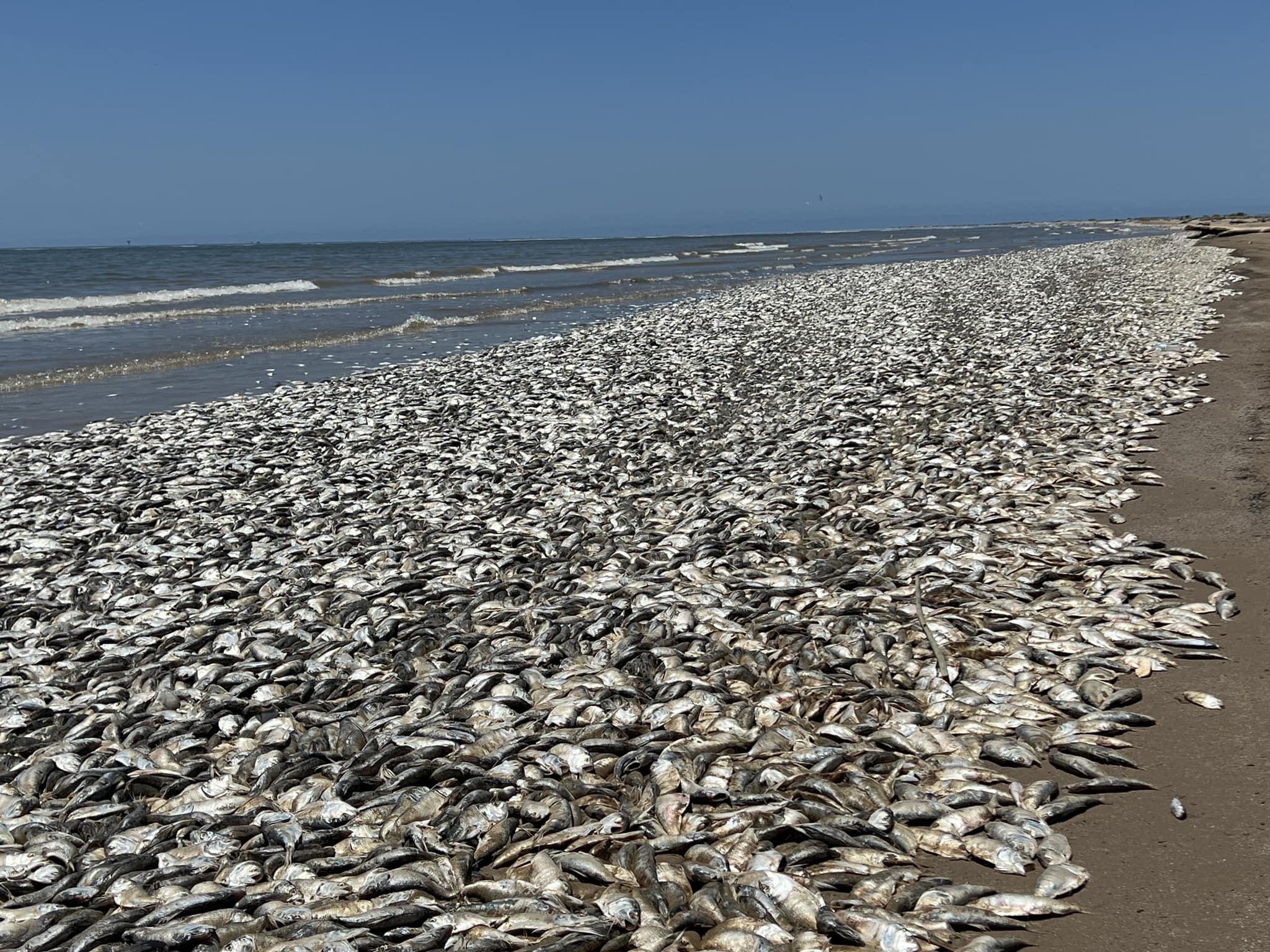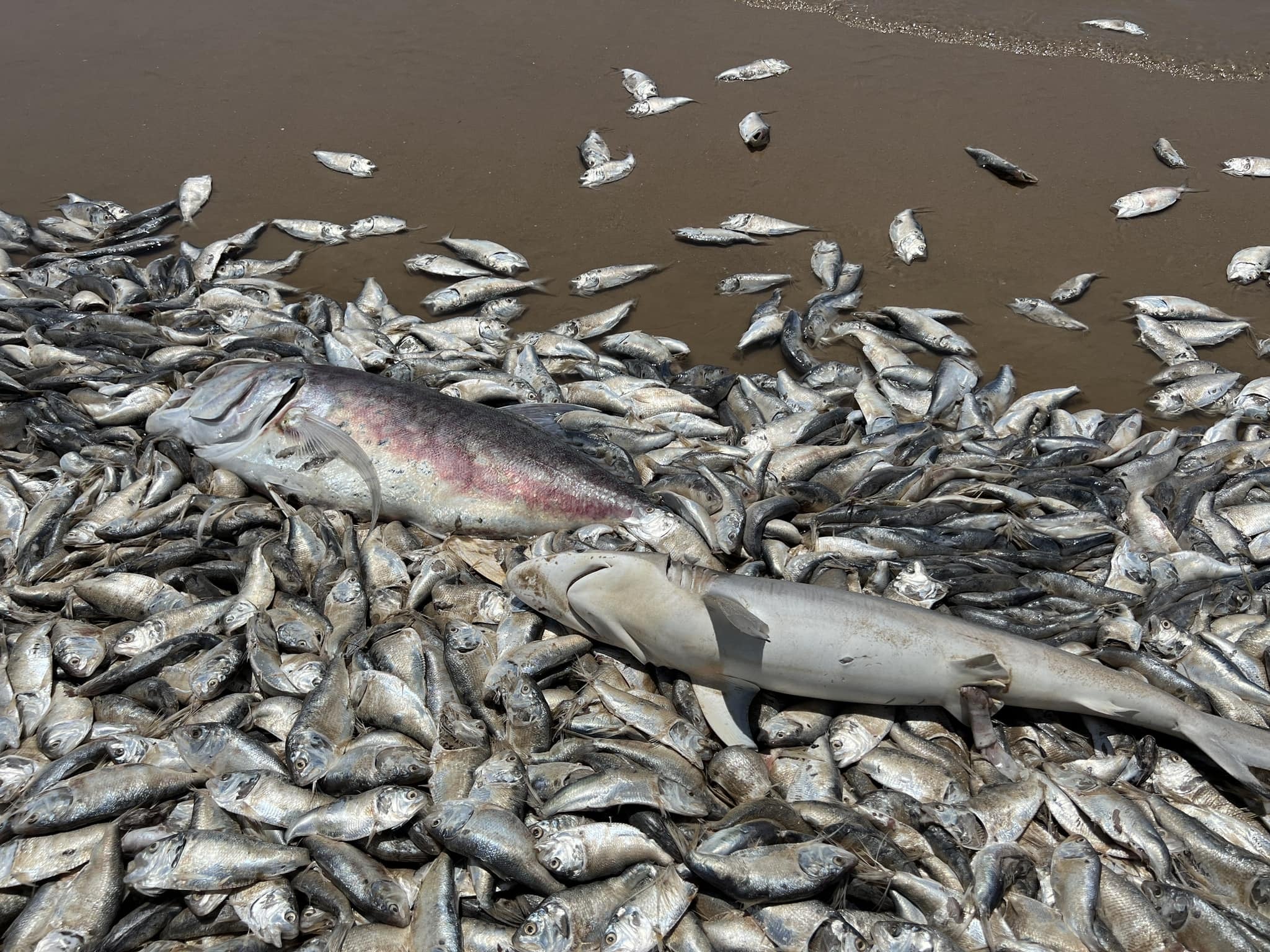Thousands of dead fish wash up in Texas after overheated water chokes them of oxygen
Park attributes fish kill to a ‘low dissolved oxygen event’

Your support helps us to tell the story
From reproductive rights to climate change to Big Tech, The Independent is on the ground when the story is developing. Whether it's investigating the financials of Elon Musk's pro-Trump PAC or producing our latest documentary, 'The A Word', which shines a light on the American women fighting for reproductive rights, we know how important it is to parse out the facts from the messaging.
At such a critical moment in US history, we need reporters on the ground. Your donation allows us to keep sending journalists to speak to both sides of the story.
The Independent is trusted by Americans across the entire political spectrum. And unlike many other quality news outlets, we choose not to lock Americans out of our reporting and analysis with paywalls. We believe quality journalism should be available to everyone, paid for by those who can afford it.
Your support makes all the difference.Thousands of dead fish washed up along the Gulf Coast in Texas over the weekend, causing concerns among residents and environmental authorities.
Cleanup operations have been underway at the Quintana Beach in Brazoria County since Friday, as dead fish continued to wash up on the shorelines over the weekend.
The incident coincided with a spike in temperatures, as the mercury reached 92 degrees Fahrenheit (33 degrees Celsisus).
The Texas Parks and Wildlife Kills and Spills Team, in a statement shared on Facebook by Quintana Beach County Park, attributed the fish kill to a "low dissolved oxygen event."
Water samples taken from the area were found to have almost no dissolved oxygen, the park said. There was no evidence of a chemical release impacting the fish.
“The species most impacted was Gulf menhaden,” the statement said.
Low dissolved oxygen, a natural occurrence in many cases, prevents fish from breathing properly, the park explained.
“Fish kills like this are common in the summer when temperatures increase. If there isn’t enough oxygen in the water, fish can’t ‘breathe’.”
The park said the cleanup has concluded for the pedestrian beach “with the exception of a spattering of fish that the machinery couldn’t get”.
“High tides over the next couple of days should sift the rest down into the sand and bury them,” it added.
Officials believe almost all of the dead fishes have washed up on the shores with the last one arriving on Sunday.
“The most recent are deteriorated to the point of being shredded skeletons,” the park said.
Gulf Menhaden holds the distinction of having the largest fishery yield in the Gulf of Mexico and supports the second-largest fishery by weight in the United States, according to the National Oceanic and Atmospheric Administration (NOAA).
Katie St Clair, the sea life facility manager at Texas A&M University at Galveston, said that warming Gulf Coast waters due to the climate crisis could have contributed to the fish kill event.

“As we see increased water temperatures, certainly this could lead to more of these events occurring, especially in our shallow, near-shore or inshore environments,” she explained to the New York Times.
The current situation aligns with the overall warming trend in the North Atlantic basin, including the Gulf. The region is experiencing record warmth for this time of year, raising concerns among hurricane forecasters and climate scientists alike.



Join our commenting forum
Join thought-provoking conversations, follow other Independent readers and see their replies
Comments